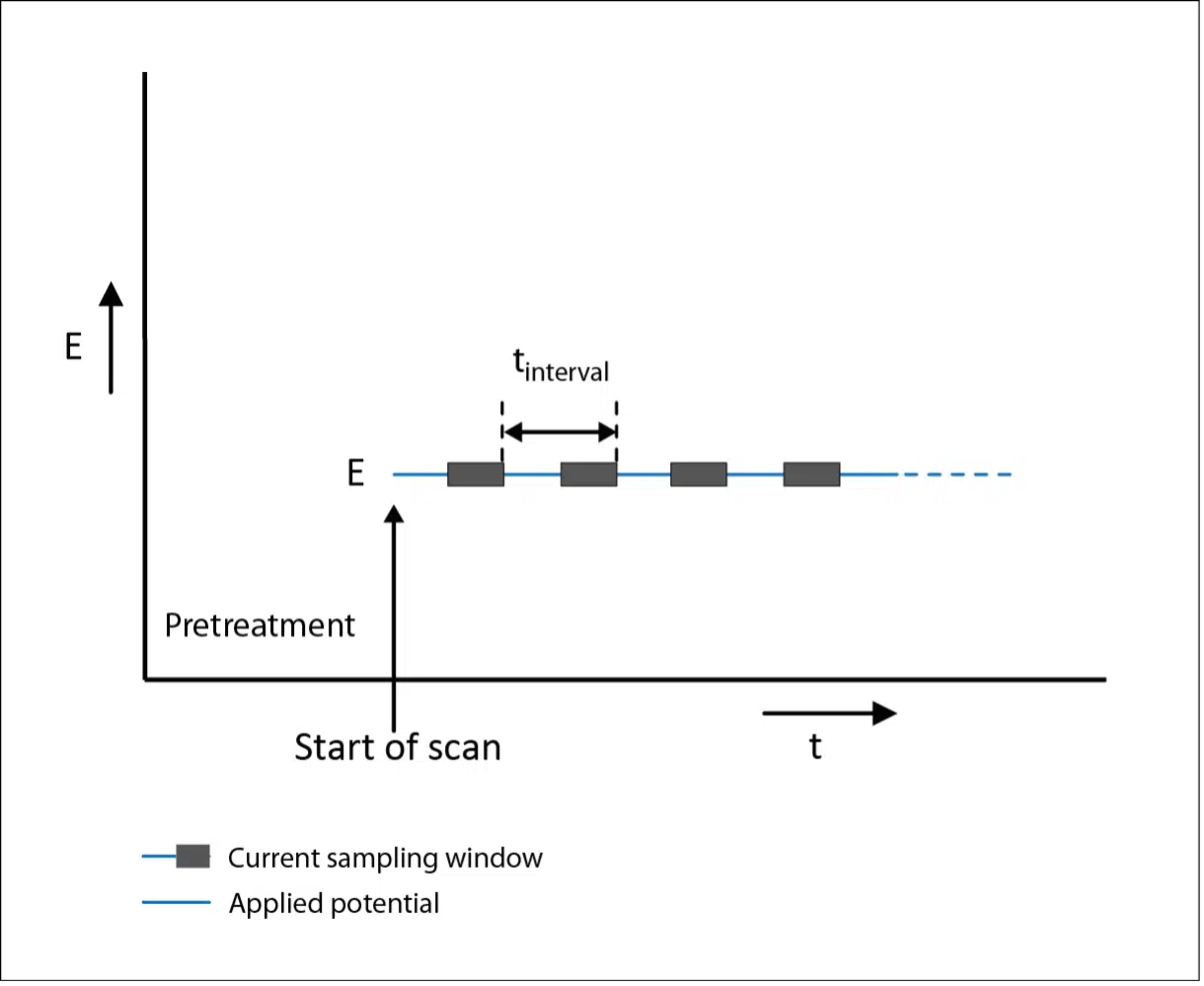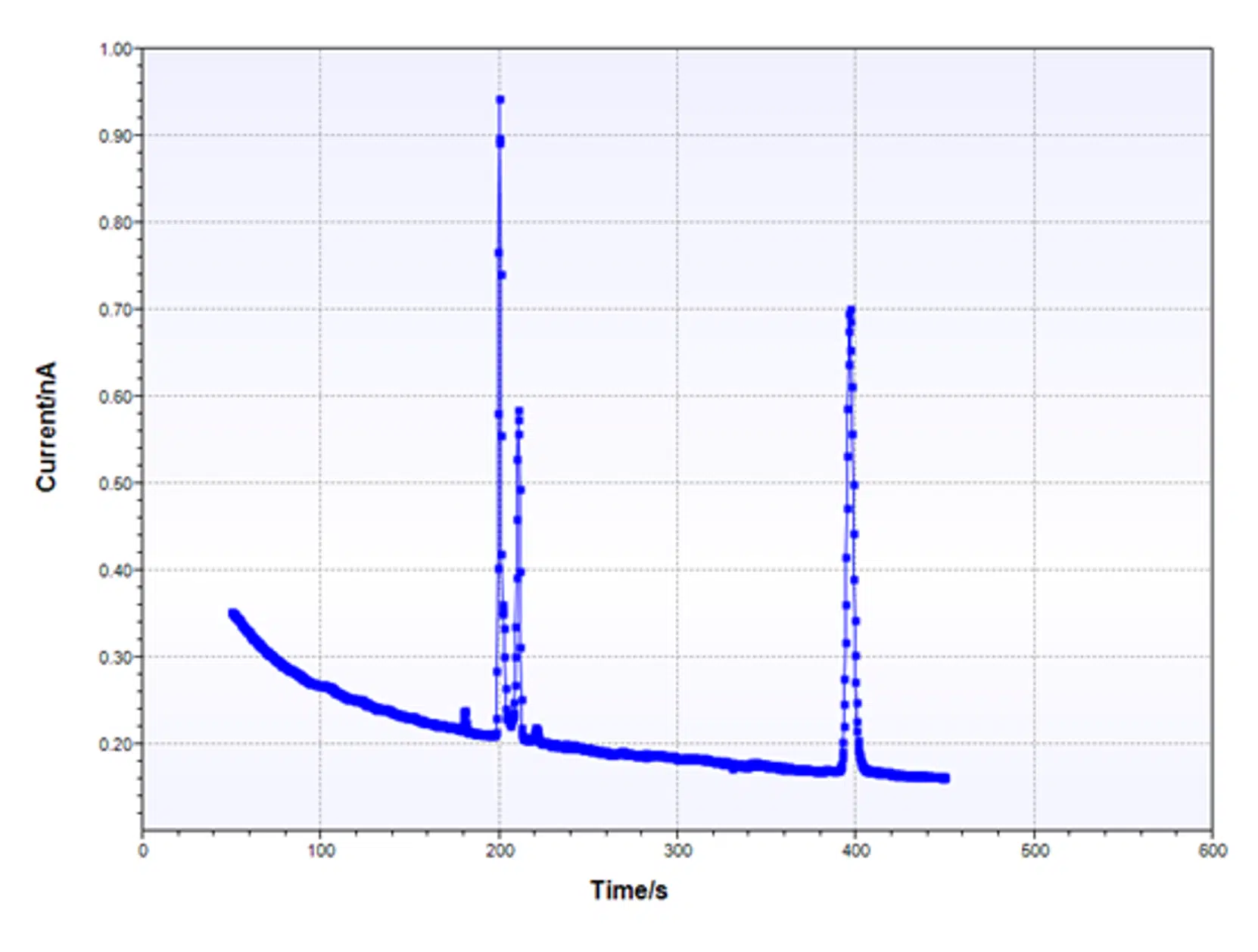Potentiostatic Polarization
Potentiostatic Polarization is an electrochemical technique, usually called Chronoamperometry (CA) at PalmSens.
Description
Potentiostatic Polarization is a simple, widely used electrochemical measurement technique. Many sensors, like those for glucose or oxygen, require this technique.

Measurement
The instrument applies a constant dc-potential (E dc) and the current is measured with constant interval times. By dividing the obtained current by a calibration factor the concentration of a specific analyte in the sample is calculated. Such applications allow the design of a very compact instrument like the ‘glucose pen’, with disposable sensors.
The technique is also applied when electrochemical detection is used with a flow cell or flow injection cell (FIA). While batch measurements result in current levels, which depend on the concentration, a FIA setup shows peaks in the current.

A typical Amperiometric Detection curve obtained using capillary electrophoresis.
Cottrell plot
For more information about showing a Cottrell plot, see Cottrell equation.
More about Chronoamperometry (CA)